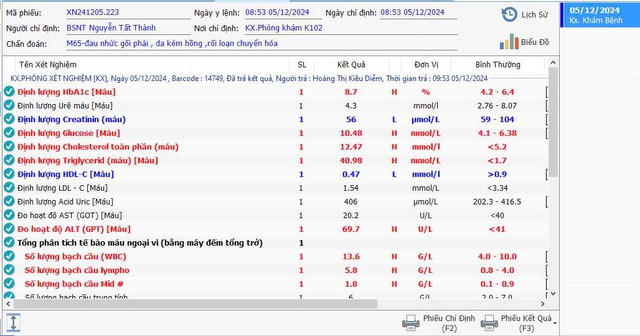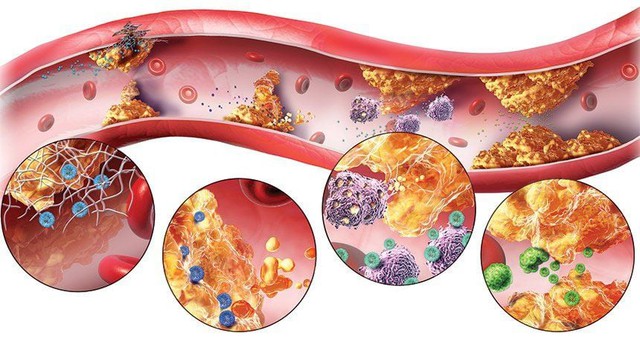GĐXH - The special thing about this patient is that although the blood index is 40 times higher, the patient is completely normal, with no symptoms. Therefore, to monitor and evaluate health indicators, people need to perform regular blood tests...
Blood fat is 40 times higher but has no symptoms.
According to information from Hung Vuong General Hospital, recently doctors at Hung Vuong General Clinic - Kim Xuyen received a 43-year-old male patient who came for examination in normal health condition. However, through blood test results, doctors discovered that blood fat indexes were nearly 40 times higher than normal people. What is special is that despite such high indexes, the patient was completely normal, with no symptoms...
It is known that blood testing is one of the important methods to help detect metabolic diseases early, especially problems related to blood lipids. One of the common signs of metabolic diseases is an increase in blood lipid indexes, causing many health risks.
When blood lipids increase, doctors will consider risk factors such as being overweight, obese, having an unhealthy diet, lack of exercise, or having a family history of cardiovascular disease and diabetes...

The patient's blood fat index is nearly 40 times higher than that of normal people. Photo: BVCC
How dangerous is high blood fat?
According to doctors, high blood fat can lead to dangerous complications such as:
Cardiovascular disease : High blood fat causes plaque buildup in the arteries, narrowing blood vessels, leading to diseases such as high blood pressure, heart attack, and stroke.
Type 2 diabetes : High blood fat can reduce the body's ability to use insulin, increasing the risk of diabetes.
Fatty liver : High blood fats can cause fat to build up in the liver, leading to non-alcoholic fatty liver disease.

Illustration photo
What should people with high blood fat do to prevent the disease?
After receiving the blood test results, the doctors gave advice and treatment methods to the patient, including:
Change your diet : Limit foods high in saturated fat and cholesterol, and increase your intake of vegetables, fruits, and foods rich in fiber.
Exercise regularly : Daily physical activity helps improve blood lipid levels and improve overall health.
Medication : In some cases, your doctor may prescribe lipid-lowering medications to help control cholesterol and triglyceride levels in the body.
Regular health check-ups : To monitor and evaluate changes in health indicators, patients need to perform regular blood tests.
Source: https://giadinh.suckhoedoisong.vn/nguoi-dan-ong-43-tuoi-o-phu-tho-bat-ngo-phat-hien-mo-mau-cao-40-lan-nguoi-viet-can-lam-dieu-nay-de-phong-benh-17224121515500435.htm










































































































Comment (0)